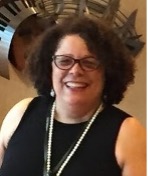 Taking a closer look at research and experiences of SSHD members
Taking a closer look at research and experiences of SSHD members
~Researcher’s Window~
This month we are getting better acquainted with the research of Dr. Deborah Johnson, Professor of Human Development and Family Studies and Director of the Diversity Research Network at Michigan State University.
- What drew you to do work in human development?
The civil rights and Black power movements resided in the backdrop of my childhood on Chicago’s south side. I witnessed struggle and change. One of the core issues of that time was how to achieve widespread social change for my generation and the generations to follow. Among the many responses was, education. To equalize education was the pebble in the pool reverberating throughout American society. When I arrived at the University of Chicago I was clear, I would be an educator, and the Human Behavior and Institutions major (later Human Development) seemed the right opportunity at the right time. Plunging into the major, I learned that not only was the problem more complex and systemic, but the answers were also multilevel and systemic. Human Development as a contextual systems approach provided the greatest potential to continue my queries, wrestling with the complex nature of my own community and others like mine. In my third year of undergraduate education it was again clear, in order to impact widespread social change the work that I did had to be at the foundation of what others did who served children. My work should be develop to influence change in how professionals delivered critical information and trained young children in schools. As such, I imagined many pools in which to drop my pebble. These early goals, though perhaps naïve, transformed over time to my deepest motivations.
- Did you have any mentor or a researcherwho had substantial influence in your path or work? Is there a significant moment or story that capsulizes the nature of that influence on your scholarship or professional journey?
There are many amazing mentors in my career path. At Cornell University in HDFS, Leachim Semaj, a Piagetian scholar from Rutgers, and Bill Cross, a social psychologist from Princeton both influenced my scholarship in ethnic-racial identity development of children, each having very different perspectives on the process theoretically. At a conference as a master’s student I requested a meeting with Diana Slaughter (Kotzin), she energetically took me by the hand and introduced me to every significant scholar of color at that conference. She then made the observation that “she was old enough to be my mother,” in the great tradition of German academic mentors referred to as “doctor-mothers” and “doctor-fathers”. She had claimed in one moment that she would be my career-long mentor. Neither of us knew at the time but it was truer than anything I’ve known before or since. She meant that she was committed to teaching me what she knew and to supporting my career through the duration of hers. I flourished under her candor and tutelage; I learned the craft. And I learned how to carry the future of others with me to open doors.
- You have a range of important work, select 1-2 findings that you feel are key contributions to human development and describe those in brief. What might be the cultural inclusion or global significance of your work?
Racial Socialization. Using Comer data from 22 urban schools in Chicago we analyzed the racial coping data of 672 African American children in elementary school over a 4 year period. We were able to demonstrate that varying diversity in student contexts elevated some coping strategies over others and that our racial coping strategies mapped onto constructs of instrumental and emotion-focused coping emanating from stress theory. Extracting a subset of children who were interviewed at grade 1 and grade 3, we learned, not surprisingly, of developmental elements of racial coping. Children matured in their racial coping shifting away from adult support to more independent strategies and non-confrontational racial coping.
Sudanese Refugee Youth. We have followed a group of unaccompanied Sudanese refugee minors (sometimes referred to as “Lost Boys”) for over 15 years. Among the many findings are those related to identity and adjustment, and those pertaining to the collective use of voice among the refugee youth. There were constant well-meaning demands placed upon the youth to tell their stories of escaping war and displacement. To avoid being re-traumatized they learned to tell a collective story (bits and pieces of all their lives) that both protected them and bridged them to the communities where they were resettled. Girls in this group were less able to use this device when not in the company of boys and this left them more vulnerable. An associated qualitative finding was discovering the vulnerability of the refugee girls to community sanctioned interpersonal violence from other Sudanese, including, male elders, relatives, and partners.
- Your one wish for the study of human development
The social sciences continue to suffer from the development of parallel schools of thought, language, and research production in some areas where few cross connections exist. For instance, prescribed camps of scholarship on social identity and ethnic racial identity rarely cite one another’s work. They exist in parallel but often do not cross dimensions. Yet these fields of inquiry and theory are intricately interrelated. Admittedly, there are many social, historical, and conceptual reasons for this parallel development that align with schools of thought. Cross-national and cross-disciplinary collaborations seem to aid us in lessening these kinds of divides. My wish for human development is that we resolve areas of dissonance and generate more of these beneficial cross-connections to advance the field globally. In my lifetime, increasing the permeability of these two lanes of scholarship and scholars would signal a critical evolution in the field.
- A mentoring statement or quote you find most meaningful or life-changing.
In a weak moment during my graduate program, I once asked a mentor, “Do you think I can complete this program?” The rejoinder came back from Dr. Josephine Allen, “You’ve asked the wrong question, is your desire to complete the program?”
About the researcher
 Dr. Deborah J. Johnson's research explores racially and culturally related development, parental racial socialization and coping, cultural adjustment from early childhood through emerging adulthood, in both domestic and international children and youth. Current work focuses on the influence of early bias preparation and coping at the intersection of gender and race among African American and Latina College women, and the impact on their well-being and school performance. Additionally, she studies cultural adjustment and identity development among unaccompanied Sudanese refugee minors and majors, and in international settings with Indigenous Australian youth and, core collaboration on Roma youth in Europe. She is also Director of the Diversity Research Network, a faculty serving entity under the auspices of MSU’s Office for Inclusion and Intercultural Initiatives.
Dr. Deborah J. Johnson's research explores racially and culturally related development, parental racial socialization and coping, cultural adjustment from early childhood through emerging adulthood, in both domestic and international children and youth. Current work focuses on the influence of early bias preparation and coping at the intersection of gender and race among African American and Latina College women, and the impact on their well-being and school performance. Additionally, she studies cultural adjustment and identity development among unaccompanied Sudanese refugee minors and majors, and in international settings with Indigenous Australian youth and, core collaboration on Roma youth in Europe. She is also Director of the Diversity Research Network, a faculty serving entity under the auspices of MSU’s Office for Inclusion and Intercultural Initiatives.
Edited and launched by Yoko Yamamoto, Deborah J. Johnson, and Qingyang Liu
SSHD Publicity & Diversity Science Initiative Committee
Visit our website for more information! https://sshdonline.org/
Like us on Facebook!
Follow us on Instagram!
Follow us on LinkedIn!
